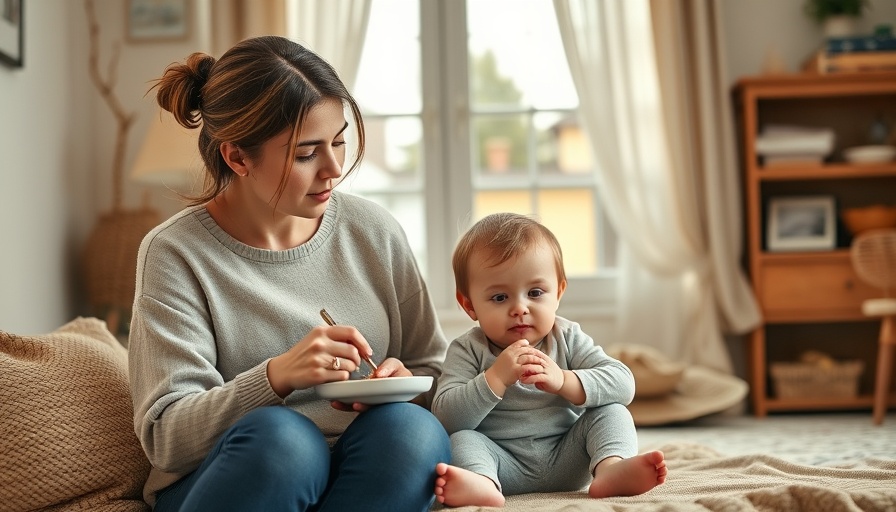
Finding Balance: A Day in the Life of a Solo Parent
In the unscripted chaos of parenting, particularly for working mothers, striking a balance between personal ambitions and maternal responsibilities becomes a nuanced dance. The video titled An HONEST Day in the Life Solo Parenting a 1 Year Old serves as a candid chronicle, shedding light on the daily challenges and joyful moments encountered by a solo parent on a quest for optimal health and wellness for both herself and her child.
In 'An HONEST Day in the Life Solo Parenting a 1 Year Old,' the discussion dives into the complexities of balancing work and motherhood, exploring key insights that sparked deeper analysis on our end.
The Boss Mom Dilemma
The featured mom embodies the spirit of a "boss mom," diligently navigating the complications of raising a young child while also honoring her professional commitments. She candidly admits that taking a maternity leave wasn't an option due to self-employment obligations, making her daily routine not just about motherhood but a blend of various roles. This leads to a relentless longing for moments spent with her children, fostering a deep sense of purpose blended with the stress of managing work.
Health Through Motion: Importance of Exercise
Physical activity plays a pivotal role in overall well-being, and this solo parent is determined to weave fitness into her chaotic schedule. Short yet meaningful workout sessions serve not only as a form of self-care but as an essential strategy in enhancing mental health. The mother mentions how staying active contributes positively to her mindset, thus benefiting her role as a parent. This highlights the critical nature of integrating fitness into daily routines, a lesson that resonates with many parents struggling to maintain their physical health amidst their responsibilities.
Meal Preparation as an Act of Care
Cooking healthy meals is depicted as a vital part of nurturing both body and soul. During a hectic day, the mother takes time to make homemade hummus, illustrating the practical concept of nourishing oneself and one’s family. It showcases her commitment to instilling healthy eating habits in her children. The attachment to preparing food that is both nutritious and enjoyable contributes to their overall health outlook. In her narrative, it becomes clear that cooking is not merely a chore but a foundational element of healthy living.
Fostering a Love for Reading Early On
One heartwarming segment of the video highlights her child’s budding interest in books. This emphasizes the importance of early childhood literacy, a critical factor in cognitive development. By sharing stories and engaging with literature, parents can promote a love of reading, which can enhance language skills, ignite imagination, and increase emotional intelligence in children. The invitation to explore the world of reading aligns with the motto that education should begin at home, underscoring the idea that every parent can set a precedent for learning.
The Hidden Costs of Modern Parenting
Yet, the video does not shy away from the struggles of modern parenting, including the emotional and physical toll it can take on individuals. It candidly reflects on the messy realities of parenting—a common experience yet often glossed over in society. The use of humor amid frustration evokes a palpable sense of connection with viewers who might find comfort in shared experiences. Emotional well-being is intertwined with the acceptance of imperfections and acknowledgment of these challenges.
Learning from Real-Life Experiences
The lesson from the video extends beyond just practical tips; it offers a heartfelt reminder that parenting is an evolving experience. For mothers grappling with the burdens of work and family life, the narrative serves as an encouraging testament that they are not alone. Their struggles, rewards, and small victories pave the path toward deeper family bonds, stronger health, and ultimately inspiring life transformations.
Interested in enhancing your family's healthy eating habits and exploring cooking challenges? Join the Weekly Healthy Recipe Challenge and unlock the secrets to fun and nutritious meals right in your kitchen!
 Add Row
Add Row  Add
Add 




Write A Comment